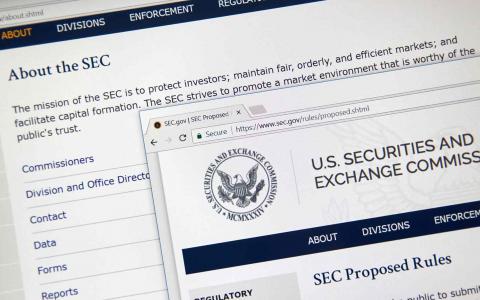
While parts of the Department of Labor’s fiduciary rule have been postponed until mid-2019, advisors could see the SEC propose its own version of the fiduciary rule as early as the first quarter, Blaine F. Aikin writes on InvestmentNews.
Will the SEC and the DOL Bring Their Fiduciary Rules into Alignment?
The DOL rule means fiduciary accountability for RIAs, but the SEC is currently letting non-registered broker-dealers operate without registering as RIAs — and without holding them to the fiduciary standard, according to Aikin, executive chairman of fi360 Inc. Advisors must give fiduciary advice for retirement accounts, but no such obligation exists for non-retirement assets, he writes.
This imbalance in accountability is unsustainable, and SEC chair Jay Clayton has said that an SEC version of the fiduciary rule is a high priority, according to Aikin. And considering the legal requirements and other factors, it is possible to speculate about how the SEC proposal might look, he writes.
The SEC isn’t likely to change the DOL’s fiduciary definition, due to firms already complying, according to Aikin. IRAs will be put under SEC control, he writes. Since there would be no new private right of action, the best interest contract exemption of the DOL’s rule will likely disappear, according to Aikin. The SEC will also likely clarify that self-directed brokerage accounts won’t involve fiduciary responsibility, and differentiate between call-center activities that are fiduciary and those that aren’t, he writes.
The regulator is also likely to require advisors to obtain client’s informed consent before switching from fiduciary to non-fiduciary roles, according to Aikin. And an advisor operating as a “consultant” or “advisor” will incur fiduciary accountability, while fiduciary relationships will conform to the Impartial Conduct Standards derived from the DOL rule, he writes.
The SEC’s rulemaking will also be coordinated with state insurance commissioners who are looking for a best-interest rule for annuities, but it is unclear how this will align with ERISA’s higher standards, according to Aikin.
It’s in the best interest of advice firms to follow the developments at the SEC, meanwhile. Considering the time needed for proposals, public commentary and implementation, an SEC fiduciary rule could be fully implemented by the end of 2019, Aikin writes.



